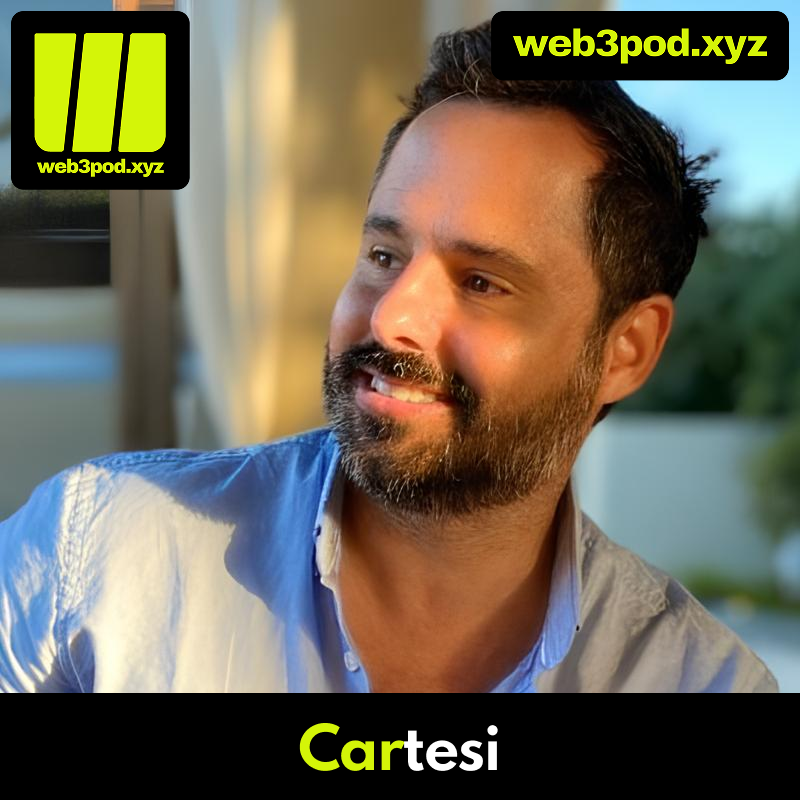Unlocking Bitcoin's next chapter: staking, DeFi, and the Core DAO vision
.png)
Bitcoin was never meant to stay still.
For over a decade, Bitcoin has stood as the flagship of decentralization—resilient, valuable, and trusted. But while its narrative has often been limited to “digital gold,” some builders believe its potential is still vastly underexplored.
In this episode of Web3 with Sam Kamani, Rich Rines, core contributor at Core DAO, joins the conversation to make a bold case: Bitcoin can do more. It can power staking, yield generation, and even become the foundational layer of decentralized finance (DeFi).
Let’s unpack the key ideas from our deep dive with Rich—and why this matters for anyone building or betting on the future of crypto.
Bitcoin and DeFi: An inevitable convergence
Rich opens by challenging the status quo: Why can’t Bitcoin be the center of DeFi?
The answer, he suggests, lies not in Bitcoin’s limitations, but in how we’ve historically treated it—as a static asset rather than a base layer for innovation. Core DAO’s mission is to bridge that gap by building a fast, secure, and scalable Layer 1 that is fundamentally Bitcoin-aligned.
Through Core’s unique Satoshi Plus consensus mechanism, they’re combining Bitcoin’s security model with the flexibility of Ethereum-compatible environments. The result? A system that allows developers and institutions to build trust-minimized financial products on a Bitcoin-aligned foundation.
Learn more: https://coredao.org/
Introducing Bitcoin staking: not just theoretical
Staking, yield farming, and restaking have largely remained outside Bitcoin’s reach—until now.
Rich explains how Core DAO is enabling Bitcoin staking by leveraging Bitcoin’s base-layer security while extending programmability and consensus participation to a scalable L1. This could unlock new financial primitives for BTC holders—without compromising the trust and finality Bitcoin is known for.
“If Bitcoin is going to remain the largest and most secure chain, then the financial system we build on top of it should be anchored in that same trust,” Rich says.
This aligns with Core DAO’s vision of a Bitcoin-backed financial system—one that serves as both the liquidity engine and the security backbone of the next generation of DeFi protocols.
Education: the missing piece for institutional adoption
Rich doesn't shy away from discussing the elephant in the room—institutional hesitation. Even as traditional players circle around Ethereum-based DeFi, many remain unsure of how Bitcoin fits into the equation.
That’s where education comes in. One of Core DAO’s core efforts involves engaging institutional players to demystify Bitcoin-native yield, staking, and consensus models. Rich believes that once the frameworks are understood—and the infrastructure proves itself—capital will follow.
Why Core DAO’s design matters
The Satoshi Plus consensus isn’t just a clever name. It’s a fusion of delegated proof of stake (DPoS) with Bitcoin’s proof-of-work (PoW) roots. Validators must not only be staked but also demonstrate active participation in Bitcoin mining, anchoring their legitimacy in Bitcoin’s security model.
This hybrid design serves multiple goals:
- Leverages Bitcoin’s trust without requiring a hard fork
- Offers EVM compatibility for developers
- Enables staking and restaking pathways for BTC holders
- Opens the door to scalable L2 applications with minimal friction
In essence, Core DAO isn’t replacing Bitcoin—it’s extending it.
Long-term vision: a financial system powered by Bitcoin
By the end of our conversation, Rich paints a clear and compelling picture:
A world where Bitcoin becomes the settlement layer for global DeFi, where users earn yield natively, and where institutions finally have the infrastructure they need to deploy real capital into decentralized systems.
This isn't just about building another blockchain. It's about redefining Bitcoin’s role in the broader financial stack.
🎧 Listen to the full episode:
Spotify
🌐 More about Core DAO:
Website | Twitter | Rich Rines on LinkedIn
📬 Be a guest or connect with us:
web3pod.xyz/contact




